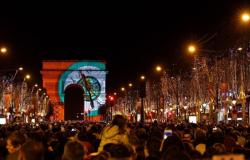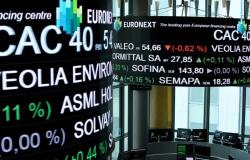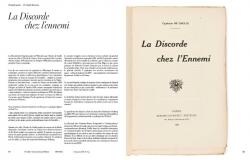1. Strengthen economic and commercial cooperation
One of the priority areas for deepening relations between Morocco and the EU lies in the extension of trade and economic exchanges. Morocco, benefiting from a “privileged partner” status with the EU thanks to the Association Agreement signed in 1996 and the Advanced Status obtained in 2008, has the opportunity to capitalize on this relationship. However, several sectors remain underexploited, particularly those linked to new technologies and green industries.
In 2022, Moroccan exports to the EU reached nearly 35.6 billion euros, mainly in the agriculture, fishing and textile sectors. Among the fast-growing sectors, the automobile industry plays a determining role. The factories of Tangier and Kenitra, which produce vehicles intended largely for export, particularly to Europe, illustrate this dynamic. Morocco, which has become an automobile production hub in the Mediterranean, exports hundreds of thousands of cars each year, notably models produced by giants like Renault and PSA. This production is not limited to satisfying the local market; it is integrated into European value chains, creating opportunities for enhanced cooperation. Furthermore, by diversifying its exports, Morocco could further strengthen its competitiveness, particularly in the field of low-CO2 emission vehicles, a strategic sector for the EU in the context of the energy transition.
However, adjustments are necessary to expand this cooperation, in particular by strengthening exports of high value-added products, such as processed agri-food products or information technologies. For this, it is crucial to lift existing non-tariff barriers and improve access for Moroccan companies to European markets. The intensification of foreign direct investments (FDI) between the two regions would also offer opportunities to make Morocco a regional investment and production hub, thus strengthening its competitiveness on the global stage.
2. Support the energy transition and sustainability
The energy transition represents a strategic area for strengthening relations between Morocco and the EU. Morocco has made significant progress, notably with the Noor solar complex in Ouarzazate, one of the largest in the world. However, to achieve the climate goals set by the Paris Agreement, it is essential to strengthen partnerships in the renewable energy sector, as well as in the development of green and sustainable infrastructure.
The EU, with its expertise in renewable energy management and environmental technologies, could support Morocco in establishing a sustainable energy model. In return, Morocco, thanks to its high potential in solar and wind energy, could play a key role in the EU’s energy security, notably by providing green electricity. Such a partnership would foster innovation, create jobs in clean energy sectors and help address shared environmental challenges. Furthermore, cooperation in research on green hydrogen and energy storage technologies constitutes a major area for the future.
3. Strengthen cooperation on migration and security
Morocco plays a crucial role in issues related to migration, the fight against terrorism and border management. The country has demonstrated great efficiency in managing migratory flows, working closely with the EU to counter human trafficking networks, facilitate the voluntary returns of migrants and set up reintegration programs. Through these efforts, Morocco has helped reduce irregular migrant arrivals in Europe, with a 23% decrease in arrivals by sea in 2021 compared to the previous year.
However, cooperation in this area could be deepened. The EU should increase its development support, particularly in migrants’ regions of origin, to address the root causes of illegal migration, such as unemployment and poverty. At the same time, it is essential to intensify cooperation in the fight against terrorism, cybercrime and radicalism, especially in the face of regional security challenges in the Sahel and North Africa.
4. Promote cultural and educational exchanges
Cultural and educational cooperation represents a strategic lever for strengthening ties between Morocco and the EU. In 2020, nearly 5,000 Moroccan students were enrolled in European universities, and many Moroccan researchers were collaborating with European institutions on scientific projects. However, these exchanges remain insufficient compared to the existing cooperation potential.
The EU can increase its support for the mobility of students, researchers and professionals, while financing university cooperation programs, professional training and cultural exchanges. It is crucial to emphasize strengthening ties in the fields of social sciences, humanities and crisis management, which are essential for promoting peace, intercultural dialogue and mutual understanding between people. In this context, Morocco, as a crossroads between the Arab, African and Mediterranean world, plays a key role in this dynamic.
5. Implementation of joint projects in sustainable agriculture
The agricultural sector constitutes a fundamental pillar of economic relations between Morocco and the EU. Thanks to the signing of the Association Agreement and the implementation of the Green Morocco Plan, the country has strengthened its position as a major supplier of agricultural products to the EU. However, to face the challenges of climate change and food security, it is crucial to intensify cooperation in the field of sustainable agriculture.
There is a need to launch joint projects aimed at promoting organic farming, improving water resource management and adopting environmentally friendly agricultural practices. The EU could also support the modernization of Moroccan agriculture, through green financing and the introduction of advanced agricultural technologies, to ensure better resilience to climate challenges.
6. Develop a common strategy for Africa
Finally, the partnership between Morocco and the EU could extend to a broader African dimension. Due to its historical and economic ties with several sub-Saharan African countries, Morocco has become an increasingly influential player on the continent. It can play a central role as a bridge between the EU and African countries, notably to strengthen economic integration, governance, security and stability in Africa.
Such a common strategy could include initiatives aimed at supporting European investments in Africa, strengthening infrastructure, and promoting partnerships in the sectors of sustainable development, agriculture and education. As a member of the African Union and the Organization of Islamic Cooperation, Morocco is well positioned to facilitate cooperation and conflict resolution in sub-Saharan Africa, while supporting regional integration projects such as the Zone African Continental Free Trade Agreement (AfCFTA).






